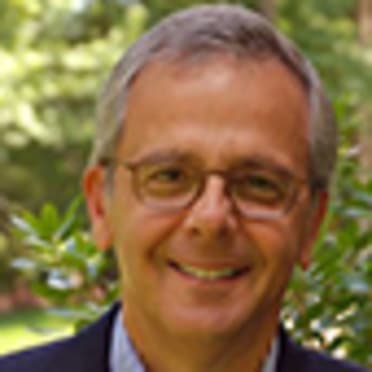Aaron inspired by youth, athletes speaking out
When Hank Aaron was in the Minor Leagues nearly 70 years ago, there was one player evaluation form about him that described his nationality as “negro.” When he was trying to break what was then Babe Ruth’s all-time home run record, Aaron received letters that called him a much worse name than that. He ended up breaking the record, anyway, near the end of one of the greatest baseball careers, one that really started with the Indianapolis Clowns of the old American Negro League. Mr. Aaron is 86 now, continuing a great and honorable American life.
I called him on Friday and asked what he thinks about now, in the context of his own journey and the racism he encountered once he left Mobile, Ala., to chase his own baseball dreams, about the America he sees on his television screen in the shadow of the death of George Floyd.
“I’m scared,” said a man who was never afraid of anything.
He paused.
“I’m scared,” he said, “because what I’m seeing reminds me of things that I have told my grandchildren when they were 8, and 9, and 10 years old. I didn’t want to tell them, but I had to tell them, about being skeptical and being afraid, and to obey everybody.”
There was another pause, longer than before, and then Hank Aaron added this:
“Something is so wrong in our country.”
Then we were talking about the hate and racism he encountered when he was trying to pass Ruth and get to 715 home runs, and how nearly a half-century after that, we were supposed to be better as a country than that. This came from a man born in the 1930s, who was a teenager when Jackie Robinson broke baseball’s color barrier in April of 1947 at Ebbets Field in Brooklyn, who had to wait until 1965 to see the Voting Rights Act signed into law by President Lyndon Johnson.
“I did what I had to do and tried to conduct myself with dignity and strength,” Aaron said. “You see, I had a job to do. But as I did that job, I never forgot, not for one minute, that I was following in the footsteps of the greatest person of my era, and that was Jackie. He taught me that in order for all of us, every black person who wanted to play sports, that to make the most of our talent and opportunity, we had to constantly bear down. And bow down to no one.”
Hank Aaron was an African-American child of the South, born a few years after Willie Mays, who was also born in Alabama. Both of them became names the country knew, became players as gifted and memorable as their game had ever seen; both of them following in the footsteps of Jackie Robinson.
“There was something else that Jackie taught us, and all the black ballplayers who followed him,” Aaron said, “and that was to never take no for an answer.”
The man who encountered so much racial intolerance, first as a young man, and then later when the whole country and not just some of it should have been cheering for him as he chased 715, has no tolerance for the violence he sees on his television screen. But, he says, his heart is gladdened as he watches athletes from his sport and all sports stand up and speak up.
“There is no question that people listen to athletes,” Aaron said. “By now, that’s a given thing in our country. Athletes have a voice. Some of them have bigger voices than others. Whether they’re white or black, I want them to use those voices. Use the money they have, of course. But start by using their voices. Because we need them now more than ever.”
His nationality, despite that old evaluation report, one out of the 1950s, is American. He reminds us of a line that the legendary New York sportswriter Jimmy Cannon once used about boxer Joe Louis, one that said Joe was a credit to his race. The human race. It is why Mr. Aaron’s own voice, as quiet as he sounded on the phone, is as big and important as it has ever been.
And, he said, he sees things on his television that give him hope, and gladden his heart. Not the violence and the ugliness. But the peaceful demonstrations, the ones about a better country and our better selves.
“I see kids out there,” he said. “I see black and white. But I see those kids. You know where the social change everybody’s talking about is going to come from? It’s going to come from them. Black or white. They’re the ones who are going to make the change that we need in our country.”
Finally the great Hank Aaron said this:
“I’m not able to move around much anymore. But if I could, I’d be out there marching. I’d be right there at the front of the line.”
